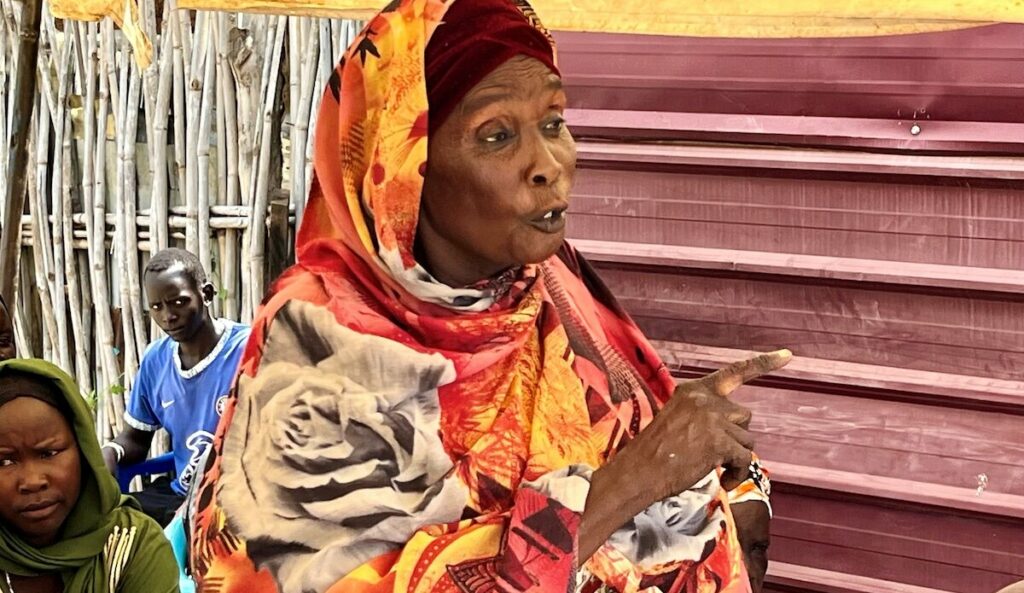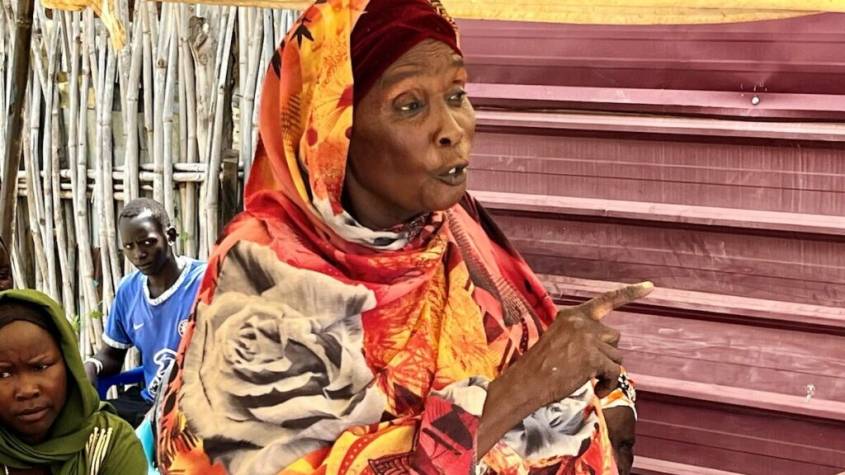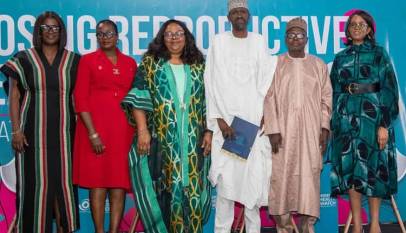Echoes of both frustration and hope as Gumbo grassroots ask tough questions about country’s future

JUBA, South Sudan, 11 October 2024 -/African Media Agency (AMA)/- On the eastern bank of the White Nile in Juba lies Gumbo Tawdat. Somewhere in its midst, under a tent protecting them from the elements, some 70 of the neighbourhood’s residents have gathered.
They, and there is a fair share of women among them, are there, hoping for answers to their numerous questions about technical, yet eminently relevant issues.
South Sudan’s revitalized peace agreement and its implementation.
The status of the drafting of a permanent constitution.
Developments related to the country’s first post-independent elections.
And: What role does the United Nations Mission in South Sudan (UNMISS) have in these multiple processes?
Some, like Netgwa Nasona, a grandmother in her 50s, have more comments than queries.
“When I hear that the transitional period has been extended by another two years, I feel like I may not even live to vote when the time comes,” she says. “We have been lied to a lot. We are tired of suffering. It’s so bad that some young people don’t even dare to have children.”
There are, representatives of the UN peacekeeping mission and the Reconstituted Joint Monitoring and Evaluation Commission agreed, plenty of uncertainties at this time in South Sudan.
It may be a natural rollercoasting scenario in a country finding its democratic feet and recovering from decades of devastating conflict, but normal without at least some answers, it seems, is taking its toll.
Will peace hold if some armed groups remain outside the peace agreement? How will the worsening economic situation be addressed? Also, what is up with the unpredictable climate, with floods displacing thousands?
What about the armed forces and their recruitment of children, unlawful arrests and chronic youth unemployment? When will South Sudan have one unified army, and how will diverging forces be merged?
Closer to home and perhaps more urgently, residents of Gumbo Tawdat wonder when communities like theirs will be adequately represented in decision-making situations? When, they want to know, will they have a real say in the ongoing political processes that are shaping their future?
Martha Nyalam Chatim, a Political Affairs Officer serving with UNMISS, tries to bring some clarity – and hope. She explains that representatives from different communities, including Gumbo Tawdat, will be selected to help draft the new permanent national constitution, the carta magna document that will dictate how politics, including elections, in South Sudan will be run.
“Your representatives must speak up for you and insist on being heard, not least when the fate of the constitution is decided,” she says, adding that, for these kind of consultations with citizens to happen, the National Constitution Review Commission will need appropriate funding.
Skepticism continues to linger among participants in the outreach event. Youth representative Asip Gama Faisel speaks up.
“Members of Parliament are supposed to speak for the grassroots, for us, as well. But we don’t even know who our representatives are, so how can we trust that we will be heard?”
At the other end of the age spectrum, Emmanuel Michael Tombe, a respected elderly figure in the community, understands the impatience of the youth.
“They have extended the transitional period again and again, but how will anything change this time?”
As a Communications Advisor for the Reconstituted Joint Monitoring and Evaluation Commission, Guy Gabriel is familiar with this, what he calls widespread, distrust.
“The real challenge is whether there’s enough political will to fully implement the peace agreement,” he ponders, before pledging his efforts to try to secure the funds needed to move the process forward.
With lots of food for thought to digest, there is a bit of silence. But not for long.
“Your questions are important, because you need to know. Keep them coming, continue to tell us what you want to know and understand,” says Reuben Inaju, Head of the peacekeeping mission’s Community Outreach Unit.
And keep coming they did.
Distributed by African Media Agency (AMA) on behalf of UNMISS.
The post Echoes of both frustration and hope as Gumbo grassroots ask tough questions about country’s future appeared first on African Media Agency.















